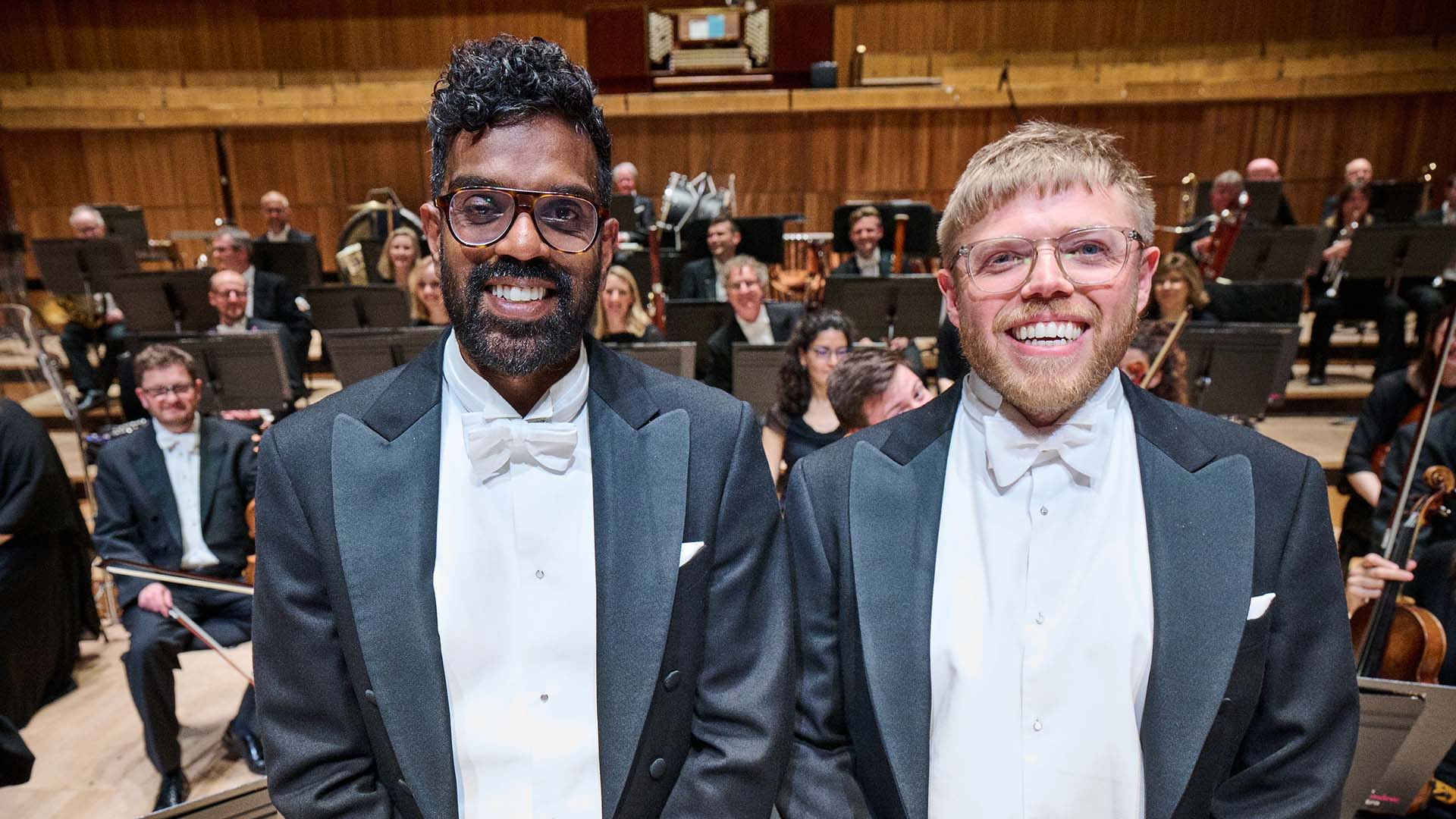On my own phone, there’s one to pay for car parking, another for identifying recorded music – and bird song – along with a tube map and various streaming platforms. But Roman Oleksiienko, trumpeter and deputy director of the National Symphony Orchestra of Ukraine, has an app with far more serious implications.
The 35-year-old’s mobile plays a loud warning if Kyiv is coming under attack, alerting its user to head to the nearest shelter. In an interview with BBC Music magazine, Oleksiienko and colleagues have shared unsettling details about life in war-torn Ukraine. While several members of the orchestra are now on active service, the rest of the ensemble continues to work in the capital, fitting rehearsals around all-too frequent rocket attacks.
It’s not the only group determined to keep playing: the Ukrainian Freedom Orchestra – formed last year in collaboration with the Metropolitan Opera and the Polish National Opera – is currently on a European tour that culminates with two UK concerts (Snape Maltings, Suffolk, 2 September and Barbican, London, 3 September).
Canada-based Keri-Lynn Wilson, the ensemble’s founding conductor and music director – of Ukrainian descent herself – believes that music can raise the profile of Ukraine while the country fights for its freedom. The orchestra is now under the patronage of Ukraine’s First Lady, Olena Zelenska, suggesting that the Ukrainian government also sees merit in politicising concerts.
- The story of Chervona Ruta – Ukraine’s pop song of resistance
- Andrey Kurkov: ‘Ukraine is a very democratic country with a good pinch of anarchy’
- First western band to play war-torn Ukraine The Tiger Lillies say it’s their ‘duty’
For its upcoming UK visit, the Ukrainian Freedom Orchestra will play works by Ukrainian composers Yevhen Stankovych (the second violin concerto) and Myroslav Skoryk (Melody), with violinist Valeriy Sokolov. The main portion of the programme is devoted to Beethoven’s Symphony No 3 – known as the ‘Eroica’, a heroic epic originally inspired by Napoleon (the title ‘Buonaparte’ was inscribed on the first page of the manuscript). But just as statues can be toppled and celebrities can be cancelled, Napoleon’s later activities resulted in Beethoven revoking the connection.
When the composer was told by his pupil Ferdinand Ries that Napoleon had proclaimed himself emperor, Beethoven reportedly lost his temper, tearing up the title page. The music mixes breathtaking melodies with anguished military marches and funeral-like processions – a fitting, emotional choice for the Ukrainian Freedom Orchestra.











